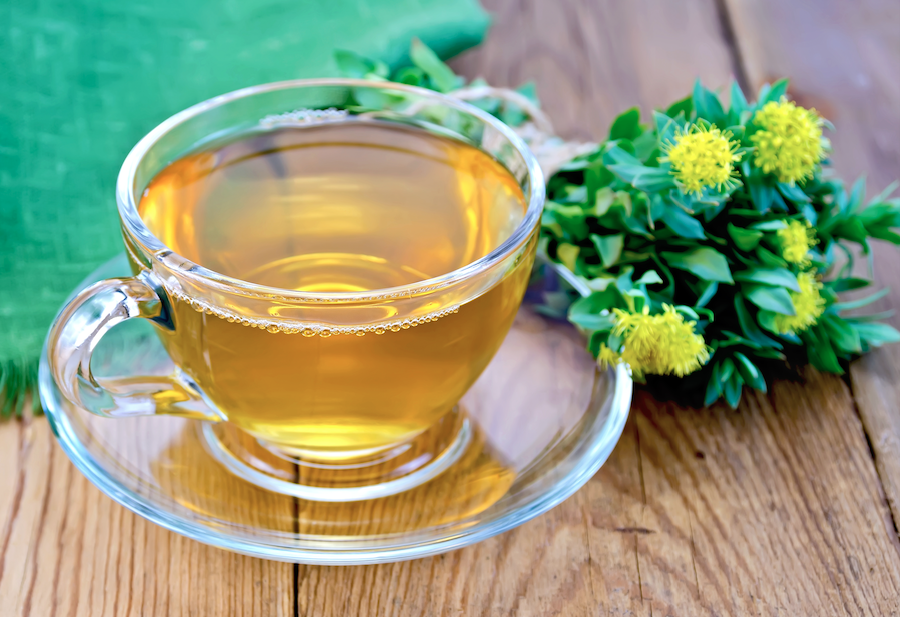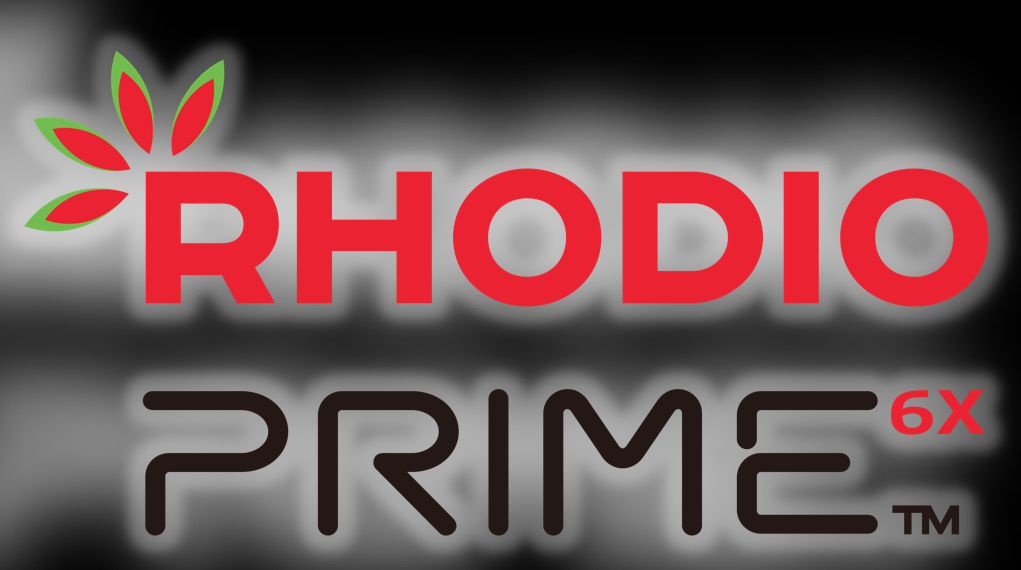Unlocking The Power of Rhodiola with RhodioPrime 6X by NNB Nutrition

Rhodiola is a medicinal plant grown at high altitudes and low temperatures in the mountainous regions of Europe, Asia and North America. This plant is known as an adaptogen, which is a category of herbs and plants that can help the body cope with physical, chemical, biological and mental stress. Historical uses suggest that Vikings used rhodiola to promote physical vitality and fight fatigue. Numerous studies performed in Russia on athletes and astronauts in the 1960s showed rhodiola was an effective adaptogen for building stress resilience and enhancing vitality.1 Not much at that time was known about the mechanism of action, but if the Russian athletes and their coaches said it worked, it worked!
 Not All Rhodiola Is Created Equal
Not All Rhodiola Is Created Equal
Rhodiola’s medicinal and pharmacological properties are related to the species, extract, strength and standardization. There are nearly 200 species of rhodiola, of which approximately 20 species have been used in traditional medicine for hundreds of years.1 The best known variety that you see in most health-food stores on the memory/focus shelf is Rhodiola rosea. This form has been shown to help increase attention and endurance during fatigue and to help prevent or reduce stress-induced impairments related to the neuro-endocrine and immune system function. So your Aunt Ruth was right to dose up on some Rhodiola rosea for better brain health support. There are even better forms available, but we’ll get to that after we look at the research behind rhodiola and its major active compounds.
There Are 8 Compounds in Rhodiola
The active constituents inside the root of rhodiola include eight major compounds: rosavins (rosarin, rosavin and rosin), salidroside, tyrosol, rhodionin, catechin and gallic acid. The main active constituent present in all species of rhodiola is salidroside, while rosavins are a specific component of Rhodiola rosea. Out of all the compounds in rhodiola, the salidroside is by far the most important of the eight.
Benefits & Research Support for Rhodiola
Mood & Well-Being Support
 One mechanism by which rhodiola’s active compound (salidroside) exhibits adaptogenic function is within the nervous system itself. Salidroside has been shown to help improve mood by acting in part as an MAO inhibitor and increasing the expression of neuropeptide Y (NPY), which is a neurotransmitter that supports feelings of well being, improved cognitive function, stress management and appetite management.2
One mechanism by which rhodiola’s active compound (salidroside) exhibits adaptogenic function is within the nervous system itself. Salidroside has been shown to help improve mood by acting in part as an MAO inhibitor and increasing the expression of neuropeptide Y (NPY), which is a neurotransmitter that supports feelings of well being, improved cognitive function, stress management and appetite management.2
Monoamine oxidases (specifically, MAO-A and MAO-B) play a central role in neurotransmitter metabolism in the brain. The activity of MAO can have an impact on mood, including feelings of anxiousness and feelings of well-being. As for neuropeptides, NPY is also a target for salidroside from rhodiola, which can influence appetite and feelings associated with hunger and the natural stress response.3 Animal research has shown that consuming rhodiola salidroside extract one hour prior to feeding significantly reduced food intake.4 This could have huge potential for dieters and may help explain why people taking salidroside report a reduction in hunger.
In another animal study, salidroside extract was shown to have a significant impact on mood. Rats given doses of 10, 20 and 50 milligrams per kilogram of rhodiola extract had greater impact on mood and feelings of well-being versus the effects of standard care.6 Additionally, salidroside was found to exhibit the most favorable effects on mood. Salidroside was also found to increase brain-derived neurotrophic factor (BDNF), decreased inflammation and depressive-like behavior in mice.7
This is great for animals, but not all animal research produces the same results in humans. However, in one double-blind, placebo-controlled human study, 42 days of rhodiola extract supplementation led to improvements of 65 to 70 percent in feelings of well-being, indicating significant improvements in healthy mood states compared to those receiving a placebo.5
Memory & Cognitive Support With Rhodiola
 Rhodiola extract has also been shown to help enhance memory, improve learning and retention. In an animal study, rhodiola extract was shown to help improve learning and retention after just 24 hours! The study also showed significant improvements in memory tests after 10 days of treatment with the same dose of the extract.8 Another study examined seven different extracts with different concentrations of rosavin and salidroside for their effects on memory and cognition. Extracts containing both salidroside and rosavin promoted the best results; however, salidroside has shown several benefits that rosavin doesn’t have.9 Several studies have shown that rhodiola’s benefits on the nervous system are most likely due to salidroside activity; in one study, a single dose of salidroside was able to provide support for memory.10
Rhodiola extract has also been shown to help enhance memory, improve learning and retention. In an animal study, rhodiola extract was shown to help improve learning and retention after just 24 hours! The study also showed significant improvements in memory tests after 10 days of treatment with the same dose of the extract.8 Another study examined seven different extracts with different concentrations of rosavin and salidroside for their effects on memory and cognition. Extracts containing both salidroside and rosavin promoted the best results; however, salidroside has shown several benefits that rosavin doesn’t have.9 Several studies have shown that rhodiola’s benefits on the nervous system are most likely due to salidroside activity; in one study, a single dose of salidroside was able to provide support for memory.10
Anxiousness, Fatigue & Stress Support With Rhodiola
 Rhodiola has also been found to have an impact on serotonin levels by providing nutritional support to promote healthy serotonin production.11 One study showed that rhodiola increased the protein content of the 5-HT1A receptor, which helps promote production of serotonin. In a separate study, researchers found that rhodiola extract helped reduce activity of the 5-HT3 receptor, which is associated with increased feelings of worry and anxiety. Rhodiola may therefore help balance the activity of serotonin receptors and therefore help reduce stress-related feelings of anxiousness.
Rhodiola has also been found to have an impact on serotonin levels by providing nutritional support to promote healthy serotonin production.11 One study showed that rhodiola increased the protein content of the 5-HT1A receptor, which helps promote production of serotonin. In a separate study, researchers found that rhodiola extract helped reduce activity of the 5-HT3 receptor, which is associated with increased feelings of worry and anxiety. Rhodiola may therefore help balance the activity of serotonin receptors and therefore help reduce stress-related feelings of anxiousness.
But does the research support this? A pilot study in humans examined the effects of Rhodiola rosea for reducing the symptoms of anxiety. Participants received 340 milligrams of Rhodiola rosea extract for 10 weeks.12 Individuals treated with the extract showed significant decreases in anxiety scores and a reduction in severity of symptoms.
Rhodiola also shows great potential as an adaptogen for stress-related fatigue. One study in rabbits subjected to physical stress found that both salidroside and rhodiola extracts were strong inhibitors of stress-induced p-SAPK/p-JNK.13 This suggests an association between the adaptogen’s potential to support feelings of well-being and performance under stressful situations.
In a double-blind, placebo-controlled study, the effects of 20 days of supplementation with 100 milligrams of rhodiola extract in students during a stressful examination period were examined. Results showed significant improvements in acute stress induced fatigue, including cognition, mental clarity and physical fitness.14 Other studies performed in humans using dosing protocols between 300 milligrams and over 500 milligrams of rhodiola extract found improvements in mental and physical stress induced via social and work dysfunction as well as reductions in fatigue.15,16
Athletic Performance & Rhodiola
 Rhodiola has also been shown to have positive benefits on athletic performance, including improving resistance to physical strenuous exercise, increasing VO2 max, increasing time to exhaustion and increasing antioxidant function. Studies suggest that rhodiola can also reduce levels of creatine kinase and C-reactive protein post exercise.17 These are important markers that measure the extent of muscle damage after a workout and help determine if your body is in a catabolic (muscle-wasting) state! Rhodiola extract’s salidroside was also found to activate amp-activated protein kinase (AMPK), increasing fatty acid oxidation and glycogen synthesis, and indicating that rhodiola may promote nutrient utilization and enhancing energy levels in the body.18,19
Rhodiola has also been shown to have positive benefits on athletic performance, including improving resistance to physical strenuous exercise, increasing VO2 max, increasing time to exhaustion and increasing antioxidant function. Studies suggest that rhodiola can also reduce levels of creatine kinase and C-reactive protein post exercise.17 These are important markers that measure the extent of muscle damage after a workout and help determine if your body is in a catabolic (muscle-wasting) state! Rhodiola extract’s salidroside was also found to activate amp-activated protein kinase (AMPK), increasing fatty acid oxidation and glycogen synthesis, and indicating that rhodiola may promote nutrient utilization and enhancing energy levels in the body.18,19
In a double-blind, placebo-controlled clinical trial, the effect of rhodiola extract supplementation on exercise capacity was tested over a 4-week period. Rhodiola was found to significantly increase time to exhaustion and VO2 max, thus improving energy levels and endurance.20 In another study, supplementation of rhodiola extract for 4 weeks in trained athletes showed that lactate levels and parameters of skeletal muscle damage were reduced after intense training.21
How to Use Rhodiola
 Rhodiola has been extensively used and studied for many years. It’s been shown to have very low toxicity, mild side effects and no known interactions with drugs or other ingredients.22 Because rhodiola has many different species and active compounds, it’s important to consider using specialized extracts of rhodiola that provide the exact actives that are necessary to experience results. A meta-analysis showed that many popular rhodiola supplements don’t contain what they state on the label. In fact, some didn’t contain any of the actives—rosavin or salidroside—indicating that products were made from less inferior rhodiola. How do you know if you’re getting a “real deal” rhodiola with salidroside? Well, you could lab test each bottle, but that could cost you thousands of dollars—if you can even find a lab that would test this for you. It’s a classic case of buyer beware, and we wish we could tell you to just trust the guy behind the counter at your favourite supplement store or simply stick with reputable supplement companies. Unfortunately, many retailers and supplement companies don’t even know the salidroside content of the rhodiola they sell. The best option is to look for a branded form of the raw ingredient rhodiola from a company you can trust and ensure that they declare the salidroside concentration. If they don’t list this concentration, look for another brand that does.
Rhodiola has been extensively used and studied for many years. It’s been shown to have very low toxicity, mild side effects and no known interactions with drugs or other ingredients.22 Because rhodiola has many different species and active compounds, it’s important to consider using specialized extracts of rhodiola that provide the exact actives that are necessary to experience results. A meta-analysis showed that many popular rhodiola supplements don’t contain what they state on the label. In fact, some didn’t contain any of the actives—rosavin or salidroside—indicating that products were made from less inferior rhodiola. How do you know if you’re getting a “real deal” rhodiola with salidroside? Well, you could lab test each bottle, but that could cost you thousands of dollars—if you can even find a lab that would test this for you. It’s a classic case of buyer beware, and we wish we could tell you to just trust the guy behind the counter at your favourite supplement store or simply stick with reputable supplement companies. Unfortunately, many retailers and supplement companies don’t even know the salidroside content of the rhodiola they sell. The best option is to look for a branded form of the raw ingredient rhodiola from a company you can trust and ensure that they declare the salidroside concentration. If they don’t list this concentration, look for another brand that does.
RhodioPrime 6X
 Since the active components of Rhodiola are so critical for its beneficial effects, NNB Nutrition developed a branded form of RhodioPrime 6X with a standardized salidroside content of 6%. This ingredient is a high quality form of Rhodiola crenulata, which is designed to be more effective than the standard Rhodiola rosea extract. As reviewed, salidroside is the most important compound in Rhodiola that has various biological effects providing support for the nervous system, cardiovascular system, cognitive function, mood support, antioxidant status, healthy circulation/oxygenation, and can improve energy levels. Consider using products that use RhodioPrime 6X, which is a highly potent, ultra pure, lab-tested formula that delivers the active ingredient required for results. RhodioPrime 6X can even be combined with Rhodiola rosea to get the benefits of the higher rosavin content as well as amplify their synergistic results when combined.
Since the active components of Rhodiola are so critical for its beneficial effects, NNB Nutrition developed a branded form of RhodioPrime 6X with a standardized salidroside content of 6%. This ingredient is a high quality form of Rhodiola crenulata, which is designed to be more effective than the standard Rhodiola rosea extract. As reviewed, salidroside is the most important compound in Rhodiola that has various biological effects providing support for the nervous system, cardiovascular system, cognitive function, mood support, antioxidant status, healthy circulation/oxygenation, and can improve energy levels. Consider using products that use RhodioPrime 6X, which is a highly potent, ultra pure, lab-tested formula that delivers the active ingredient required for results. RhodioPrime 6X can even be combined with Rhodiola rosea to get the benefits of the higher rosavin content as well as amplify their synergistic results when combined.
 If you want more information on this ingredient, or any other ingredients from NNB Nutrition visit nnbnutrition.com.
If you want more information on this ingredient, or any other ingredients from NNB Nutrition visit nnbnutrition.com.
- Li Y, et al. Rhodiola rosea L: an herb with anti-stress, anti-aging, and immunostimulating properties for cancer chemoprevention. Curr Pharmacol Rep. 2017. 3(6): 384-95.
- Van Diermen D, et al. Monoamine oxidase inhibition by Rhodiola rosea L. roots. J Ethnopharmacol. 2009. 122(2): 397-401.
- Panossian A, et al. Adaptogens stimulate neuropeptide y and hsp72 expression and release in neuroglia cells. Frontiers Neurosci. 2012.
- Cifani C, et al. Effect of salidroside, active principle of Rhodiola rosea extract, on binge eating. Physiol Behav, 2010. 101(5): p. 555-62.
- Darbinyan V, et al. Clinical trial of Rhodiola rosea L. extract SHR-5 in the treatment of mild to moderate depression. Nord J Psychiatry. 2007. 61(5): 343-8.
- Panossian A, et al. Comparative study of Rhodiola preparations on behavioural despair of rats. Phytomed. 2008. 15(1): 84-91.
- Zhu L et al. Salidroside attenuates lipopolysaccharide (LPS) induced serum cytokines and depressive-like behavior in mice. Neuroscience Letters. 2015. 606: 1-6.
- Petkov VD, et al. Effects of alcohol aqueous extract from Rhodiola rosea L. roots on learning and memory. Acta Physiol Pharmacol Bulg. 1986. 12(1): 3-16.
- Dimpfel W, et al. Assessing the quality and potential efficacy of commercial extracts of Rhodiola rosea L. by analyzing the salidroside and rosavin content and the electrophysiological activity in in hippocampal long-term potentiation, a synaptic model of memory. Frontiers Pharmacol. 2018. 9: 425.
- Palmeri A, et al. Salidroside, a bioactive compound of Rhodiola rosea, ameliorates memory and emotional behavior in adult mice. JAD. 2016. 52(1): 65-75.
- Chen QG, et al. The effects of Rhodiola rosea extract on 5-HT level, cell proliferation and quantity of neurons at cerebral hippocampus of depressive rats. Phytomed. 2009. 16(9): 830-8.
- Bystritsky A, et al. A pilot study of Rhodiola rosea for generalized anxiety disorder (GAD). J Altern Complement Med. 2008. 14(2): 175-80.
- Panossian A, et al. The adaptogens rhodiola and schizandra modify the response to immobilization stress in rabbits by suppressing the increase of phosphorylated stress-activated protein kinase, nitric oxide and cortisol. Drug Target Insights. 2007. 2: 39-54.
- Spasov, AA et al. A double-blind, placebo-controlled pilot study of the stimulating and adaptogenic effect of Rhodiola rosea SHR-5 extract on the fatigue of students caused by stress during an examination period with a repeated low-dose regimen. Phytomed. 2000. 7(2): 85-9.
- Shevtsov VA, et al. A randomized trial of two different doses of a SHR-5 Rhodiola rosea extract versus placebo and control of capacity for mental work. Phytomed. 2003. 10(2-3): 95-105.
- Olsson EM, et al. A randomized, double blind placebo-controlled, parallel-group study of the standardized extract SHR-5 of the roots of Rhodiola rosea in the treatment of subjects with stress related fatigue. Planta Med. 2009. 75(2): 105-12.
- Abidov, M et al. Extract of Rhodiola rosea radix reduces the level of C- reactive protein and creatinine kinase in the blood. Bull Exp Biol Med, 2004. 64. 138(1): 63-4.
- Li HB, et al. Salidroside stimulated glucose uptake in skeletal muscle cells by activating AMP-activated protein kinase. Eur J Pharmacol, 2008. 588(2-3): 165- 9.
- Zheng T, et al. Salidroside ameliorates insulin resistance through activation of a mitochondria-associated AMPK/PI3K/Akt/GSK3b pathway. Br J Pharmacol. 2015. 172(13): 3284-3301.
- De Bock K, et al. Acute Rhodiola rosea intake can improve endurance exercise performance. Int J Sport Nutr Exerc Metab, 2004. 14(3): 298-307.
- Parisi, A, et al., Effects of chronic Rhodiola Rosea supplementation on sport performance and antioxidant capacity in trained male: preliminary results. J Sports Med Phys Fitness, 2010. 50(1): 57-63.
- Panossian A, et al. Rosenroot (Rhodiola rosea): traditional use, chemical composition, pharmacology and clinical efficacy. Phytomed. 2010. 17(7): 481-493.

